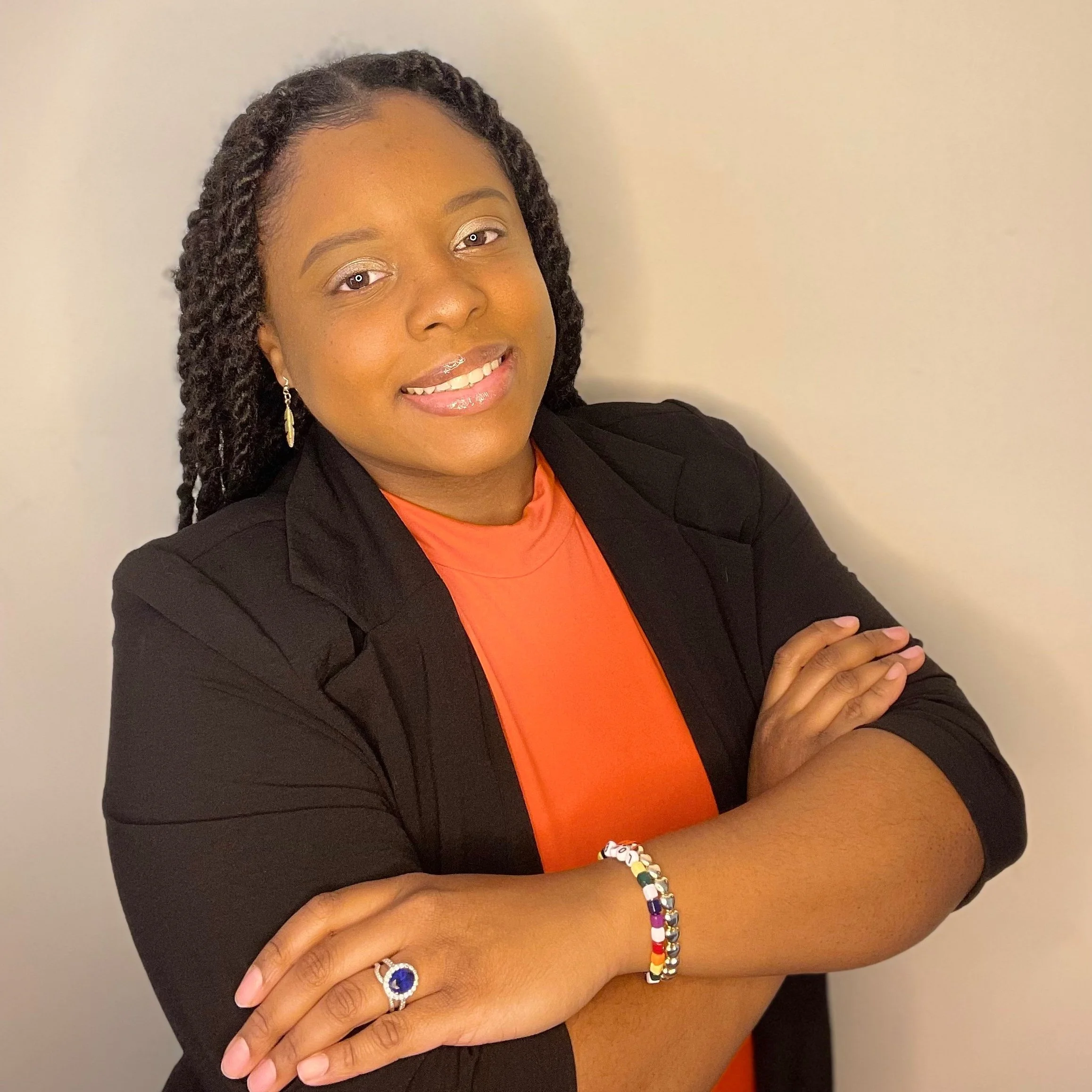
Depression Therapy in Atlanta & Dunwoody, GA
Find Light in the Middle of Darkness
Depression can leave you feeling drained, disconnected, or hopeless about the future. It can affect your energy, relationships, and even the simplest daily tasks, making life feel overwhelming. At YouWell Collective, our therapists provide evidence-based depression therapy to help you find relief, rebuild hope, and take meaningful steps forward.
Signs of Depression You Shouldn’t Ignore
Persistent sadness, emptiness, or hopelessness
Loss of interest in hobbies or activities you once enjoyed
Trouble sleeping or oversleeping
Feeling drained, fatigued, or lacking energy
Changes in appetite or weight
Difficulty concentrating, remembering, or making decisions
Feelings of guilt, shame, or worthlessness
Withdrawing from friends, family, or responsibilities
If you notice several of these signs lasting more than a couple of weeks, it may be time to reach out for support. Therapy can give you a safe space to talk through what you’re feeling, gain clarity, and begin building a path toward relief and healing.
Depression can affect more than just your mood—it often shows up in your energy, motivation, and even how you relate to others. These signs may build slowly over time, making it easy to dismiss them as stress or exhaustion. But paying attention to them is important, because depression is treatable and help is available.
Common symptoms of depression include:
Types of Depression You May Experience
Depression isn’t the same for everyone. For some, it feels like a heavy sadness that never lifts. For others, it may show up as irritability, exhaustion, or a lack of motivation that makes daily life harder than it should be. Understanding the different ways depression can appear helps you recognize your own experience—and reminds you that no matter the type, it is treatable.
Some common types of depression include:
Postpartum Depression:
Depression that develops after childbirth, often marked by sadness, fatigue, or difficulty bonding with your baby.
Situational Depression:
Depression triggered by major life changes such as loss, relationship struggles, or stressful transitions.
Major Depressive Disorder (MDD):
Persistent sadness, emptiness, or loss of interest that lasts most of the day, nearly every day.
Persistent Depressive Disorder (Dysthymia):
A longer-term but often less intense form of depression that can last for years, creating a constant undercurrent of low mood.
Seasonal Affective Disorder (SAD):
A type of depression that follows seasonal patterns, most common in the fall and winter when there’s less sunlight.
No matter what type of depression you may be experiencing, you don’t have to go through it alone. With the right support, therapy can help you gain clarity, learn coping tools, and begin moving toward healing and hope.
Depression Affects Millions—But Many Don’t Seek Help
Depression is one of the leading mental health concerns in the United States. Nearly 8% of adults experience at least one major depressive episode each year, yet more than half never receive treatment (National Institute of Mental Health (NIMH)). For many, barriers like stigma, cost, or uncertainty about where to turn prevent them from reaching out for support.
At YouWell Collective, we believe no one should have to carry that weight alone. Our therapists provide compassionate depression therapy in Atlanta and Dunwoody, along with secure online sessions across Georgia, to help you find relief and reconnect with what matters most.
Our Approach to Depression Counseling in Atlanta & Dunwoody, GA
At YouWell Collective, we know depression isn’t one-size-fits-all. That’s why our approach combines proven methods with compassion and care, creating a plan tailored to your needs. From the very first session, your therapist will listen closely to your story—what you’re struggling with, what you hope for, and what “feeling better” means to you.
We draw from evidence-based approaches such as:
Cognitive Behavioral Therapy (CBT):
Helps you notice negative thought patterns and shift them toward healthier, more balanced perspectives.
Mindfulness Practices:
Teaches simple ways to calm your mind, reduce overthinking, and be more present in daily life.
Solution-Focused Therapy:
Encourages small, realistic steps that restore motivation and build confidence over time.
Trauma-Informed Care:
Recognizes the impact of past experiences and supports healing without re-traumatization.
Therapy isn’t just about techniques—it’s also about connection. Our depression therapists provide a safe, supportive space where you can share openly, process emotions without judgment, and practice skills that bring relief.
Whether you’re experiencing major depression, postpartum depression, or ongoing low mood, our goal is the same: to help you feel lighter, more hopeful, and more empowered to move forward.
How Depression Therapy Can Help You
Depression doesn’t only show up when life is hard. You can have a loving family, good friends, a steady career, or financial stability—and still feel weighed down by sadness or emptiness. For some people, depression appears without a clear reason. For others, it’s tied to a major life change, loss, or ongoing stress. No matter the cause, what you’re feeling is real—and you don’t have to go through it alone.
In counseling, you’ll find both immediate support and long-term strategies to build a more balanced life. Depression therapy can help you:
Processing Overwhelming Emotions
Depression often brings waves of sadness, guilt, or hopelessness that feel too heavy to manage alone. Therapy offers a safe, judgment-free space to express those feelings, understand where they come from, and begin releasing their hold on your daily life.
Rebuilding Motivation and Energy
Simple tasks—like getting out of bed, making meals, or going to work—can feel exhausting when you’re depressed. Through therapy, you’ll learn strategies to restore energy and gradually bring back a sense of motivation for everyday responsibilities and the activities you once enjoyed.
Developing Healthy Coping Skills
Depression can drain your ability to handle stress, leaving you overwhelmed or fatigued. In counseling, you’ll build practical tools that fit your lifestyle—whether it’s calming racing thoughts, balancing rest with activity, or finding healthier ways to navigate difficult moments.
Challenging Negative Thought Patterns
One of depression’s most common effects is the cycle of negative self-talk—thoughts like “I’m not good enough” or “Nothing will ever change.” Therapy helps you recognize these patterns and replace them with more balanced, compassionate perspectives that make space for hope.
Strengthening Relationships
Depression often creates distance between you and the people you care about. In therapy, you’ll learn how to communicate more openly, express your needs, and build emotional awareness, so your relationships can feel more supportive and connected.
Creating Meaningful Goals for the Future
When depression clouds your outlook, it can feel impossible to imagine a brighter future. Counseling helps you set realistic, meaningful goals that align with your values—whether it’s rediscovering joy in hobbies, feeling more present with loved ones, or regaining confidence in yourself.
Online Depression Therapy in Georgia, Florida & South Carolina
When you’re living with depression, even simple tasks—getting dressed, commuting, or finding the energy to leave the house—can feel overwhelming. Online depression therapy makes it possible to get support without those added barriers. With a secure, HIPAA-compliant video platform, you can meet with a therapist who specializes in depression from the comfort and privacy of your own home.
Why Choose Online Depression Therapy?
Depression often brings fatigue, low motivation, or a sense of being “stuck.” These symptoms can make in-person sessions hard to keep up with. Online therapy provides a flexible, accessible alternative that helps you stay consistent with care. Whether you’re managing sadness, hopelessness, or loss of interest, online sessions allow you to receive the same personalized support as you would in person—without the stress of commuting.
Accessible Care Across Georgia, Florida & South Carolina
YouWell Collective offers online depression therapy throughout Georgia, Florida, and South Carolina. Many clients find that being in their own space makes it easier to open up, while others appreciate the convenience of scheduling therapy around their energy levels. No matter where you’re located, compassionate and evidence-based care is always within reach.
Meet Our Atlanta-Based Depression Therapists
Frequently Asked Questions About Depression Therapy
-
If you’ve been feeling sad, empty, or hopeless for more than two weeks and those feelings are interfering with your daily life, it may be time to seek therapy. Depression often affects sleep, appetite, motivation, and relationships. If you find yourself withdrawing from others, struggling to focus, or losing interest in activities you once enjoyed, therapy can provide the support and tools you need to start feeling better.
-
Yes. Medication can be helpful for many people, but it doesn’t always address the underlying thought patterns, emotions, and behaviors that fuel depression. Therapy helps you explore those deeper layers, teaching you practical coping strategies, ways to challenge negative thoughts, and tools to rebuild motivation. Many clients find that therapy works alongside medication, while others rely on therapy alone for lasting relief.
-
Sadness is a normal human emotion—it usually comes after a specific event, such as a disappointment, loss, or stressful day, and tends to ease with time, support, or positive experiences. Depression, on the other hand, is more than temporary sadness. It lingers for weeks or months, often without a clear reason, and affects many areas of life. With depression, you may lose interest in things you once enjoyed, struggle with energy or motivation, experience changes in sleep or appetite, and feel a sense of hopelessness that doesn’t go away on its own. While sadness is something everyone feels from time to time, depression is a medical condition that benefits from professional support and treatment.
-
Yes—recovery from depression is absolutely possible. While it may not feel that way when you’re in the middle of it, depression is one of the most treatable mental health conditions. With the right combination of therapy, coping strategies, lifestyle changes, and in some cases medication, many people are able to find lasting relief. Recovery doesn’t always mean you’ll never feel sad again, but it does mean you can reach a place where depression no longer controls your life. Therapy helps you build resilience, rediscover motivation, and develop tools that make it easier to manage future challenges. Every step you take toward getting support brings you closer to healing.
-
The timeline is different for everyone. Some clients begin noticing small changes—like sleeping better or feeling a little more motivated—after just a few sessions. More significant improvements usually happen over time as you practice new skills and consistently attend therapy. The goal isn’t just short-term relief but long-term tools to help you manage depression and feel more in control of your life.
-
Yes. Studies show that online therapy can be just as effective as in-person sessions for treating depression. Many clients even find it easier to attend regularly because there are fewer barriers, such as commuting or lack of energy. With secure, HIPAA-compliant video sessions, you’ll receive the same compassionate, evidence-based care as you would in our Atlanta or Dunwoody offices.
-
Absolutely. Your privacy is always protected. What you share with your therapist stays between you and them, except in very limited situations required by law (such as risk of harm to yourself or others). Whether you choose in-person counseling or online sessions, we use secure systems to ensure your information is safe.
Let’s Get Started — Book Your Free Consultation
Just fill out the form below. We’ll be in touch within 24-48 business hours.
Your information is 100% confidential. We’re here to support you, not pressure you.








